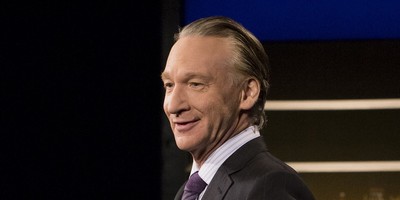How many jobs in your state would be lost by a $15 minimum wage mandate? Well, thanks to a study just out from The Heritage Foundation, we’ve now got a pretty good idea. And the numbers are terrifying.
But that shouldn’t come as a surprise. It’s a well-established fact that arbitrary minimum wage hikes are a jobs-killer – the country’s leading economists have admitted as much, as has the Congressional Budget Office (CBO). Unfortunately, that hasn’t stopped states and localities across the nation, and progressive politicians in Washington, from pushing these policies. Washington, D.C., New York, California and Seattle have all passed legislation increasing their minimum wage to $15 an hour, with more on the way.
So now to the numbers: Heritage’s study, conducted by research fellow in labor economics James Sherk, found that state minimum wage hikes would directly lead to the loss of nine million jobs across the country. Nine million. Let that sink in.
According to the study, the states that would be hit hardest include Texas, California and Florida. Both Texas and California would lose more than 900,000 jobs, with Florida not far behind with 700,000 job losses. New York, which passed their $15 wage law this year to phase in fully by the end of 2021, will likely lose over 400,000 full-time-equivalent positions.
Recommended
Even in small states like West Virginia, where 52,000 jobs would disappear, the effects would be huge. More than 37 percent of West Virginia’s wage and salaried workers would be detrimentally impacted.
If you think the ramifications would be negligible, think again. These drastic job losses would fundamentally alter these states’, and the nation’s, economies. These policies won’t lift people out of poverty, they’ll put them there.
Arbitrary price floors don’t work in a free market and dangerous market manipulations will lead to a trove of unintended consequences. From layoffs to reduced hours, to automated kiosks, outsourcing and a sharp increase in consumer prices, a $15 starting wage will have reverberations across all sectors of our economy. And forget job growth. In fact, policies like this will force the inequality gap to grow even larger.
Not to mention that misguided wage policies harm the very people they are intended to help. They stifle the employment opportunities of less-skilled and less-experienced workers – the ones most likely to be working in a minimum wage job in the first place. These types of “starting wages” jobs were designed to be entry level – not positions for life. The fact is that these low-skilled and low-income workers will be hit very hard and many left without anywhere to go.
Unfortunately, Big Labor groups – who seek exemptions from these same policies – have hijacked this effort through the spread of myths and misinformation under the guise of “fair pay.” But for them, this isn’t about a “living wage” or fighting for “income equality,” it’s about carving out a special section of the labor market where they can present themselves as the more affordable option.
A $15 minimum wage was once considered a fringe idea. You can’t find many studies on the near-term effects of such a policy because economists never seriously considered it. But this Heritage study fills that gap. And should be shared far and wide.
























Join the conversation as a VIP Member